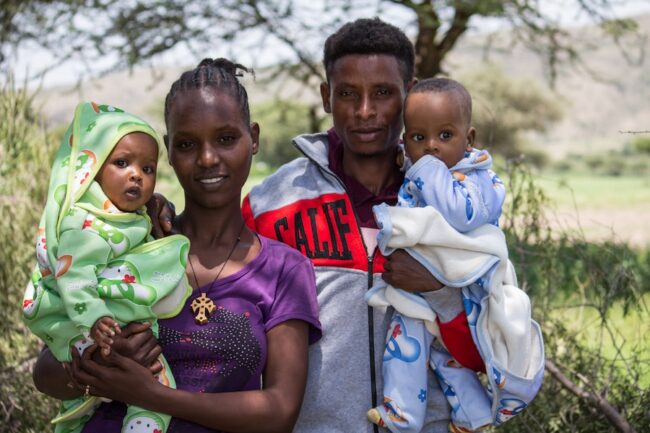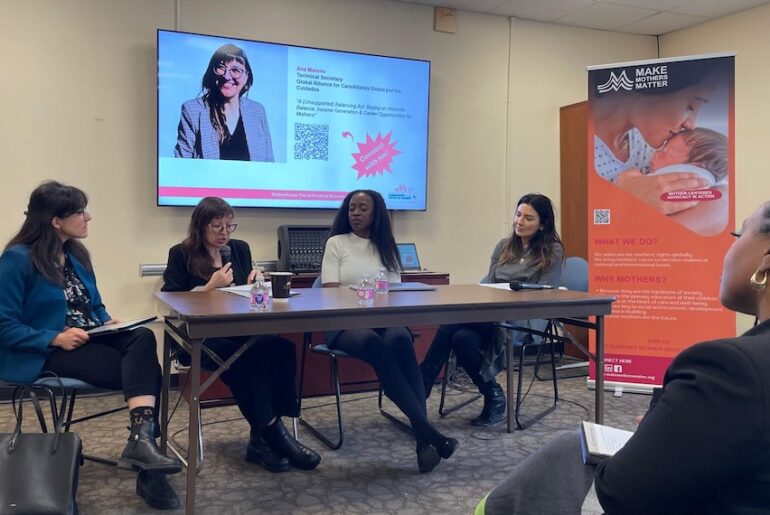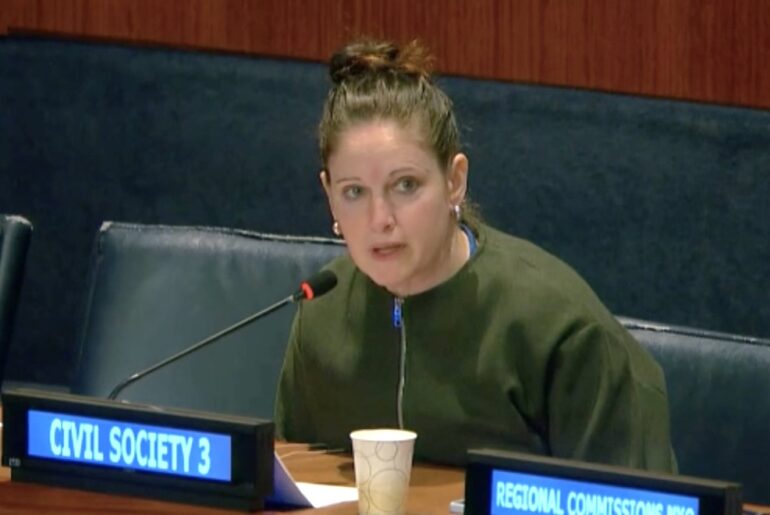Families need time
15.05.14
International Day of Families - 2014 marks the twentieth anniversary of the International Year of Families. MMM President Anne-Claire de Liedekerke takes this opportunity to make a plea for something which families need, but lack: time.

Time gives the chance to listen, be there when needed, feel crises approaching, provide the emotional support and security that children need to grow, time to be present and available. Time, which is missing for most families torn between their professional obligations and family responsibilities.
There is the so-called “rush hour” for young couples, facing at the same time, demands of a professional life where they are being assessed, and the responsibilities of family life with its own requirements.
Different types of childcare, holiday courses and grandparents help parents balance work and family life. This is indispensable but it is not enough.
The basic principle, supported by the 2020 Strategy of the European Union, is the need for adults to be active on the labour market. It is a protection against poverty and a growth factor for our societies.
But everyday reality shows that such a goal is not easy for families to achieve and that it comes at a price for families.
It should be possible to envision discontinuous work trajectories to allow parents, at certain periods, to dedicate more time to their family.
In our countries, we live longer and healthier. In a lifetime, a mother’s working life is long compared to the child bearing and child rearing years.
It should be possible to reduce professional requirements when family demands are very important. This means being able to leave the labour market, partially or completely, for a specified period of time, to give priority to the family.
It is time to consider families’ priorities in this much-desired balance between work and family life. An OECD report published in 2011, insists that OECD countries need to find an optimal balance between preparing families for life in the labour market and preparing the labour market for the lives of families – those countries that manage this challenge best, will do better for their families .
This would be a new vision of life-long balance between family life and professional life, integrating the critical importance of time in the lives of families and recognizing the contribution of families to the societies in which they live.
Yet most men and women cannot afford to leave the labour market, even partially, without risk to their budget, their pensions and their professional reintegration.
What needs to change to make a discontinuous work trajectory possible?
- Rehabilitation of quality and chosen part-time work, for men and women, as a temporary means of reconciling family life and working life.
- Inclusion of unpaid care work in the calculation of gross domestic product of countries to assess its value and recognize it as contributory periods. If time dedicated to unpaid care work is recognized as contributory, it may then be included in the calculation of pensions.
- Assessment of competencies acquired and developed by performing unpaid family work would allow its inclusion in a professional course. Re-entry on the labour market would then be facilitated by employers developing a different outlook towards periods of family work done by mothers and fathers.
All parents know that bringing up children and family chores are real work, hard, but also intelligent, creative and essential.
If family work is understood as such, every mother, every parent is a true entrepreneur, a manager who sets goals, provides the means to achieve them, and manages assets, inventories, supplies and time. Each mother and father is a HR manager or a psychologist who oversees human relations, and develops the potential and wellbeing of everyone. They provide support when times get rough. They are the juggler who has so many balls in the air it takes a lot of skill and attention to keep them all.
Being a parent is a real job, a beautiful job, deserving our support and admiration. A tough job, for which parents need to be helped and recognized, not penalized.
Let us take the opportunity of this twentieth anniversary to change our perspective on families, and on the role of parents in our societies. What they do is essential not only for their children but also for society and therefore for all of us.
Anne- Claire de Liedekerke
President Make Mothers Matter
Mothers, unpaid care work and global crises – connecting the dots
02.07.24
UN New York / HLPF - Register now to join us online at this year’s High Level Political Forum side-event.
Time Poverty and the Motherhood Penalty
Unveiling Economic and Social Injustices
09.07.24
Mothers play an essential role in families by ensuring their loved ones are nourished, educated, and healthy, but their unpaid care work often leads to economic and social injustices, known
Envisioning care as a common thread to global crises
29.07.24
UN New York - Our virtual HLPF side-event brought together experts to shed light on how the various global crises we face (in particular climate change and other environmental crises,








